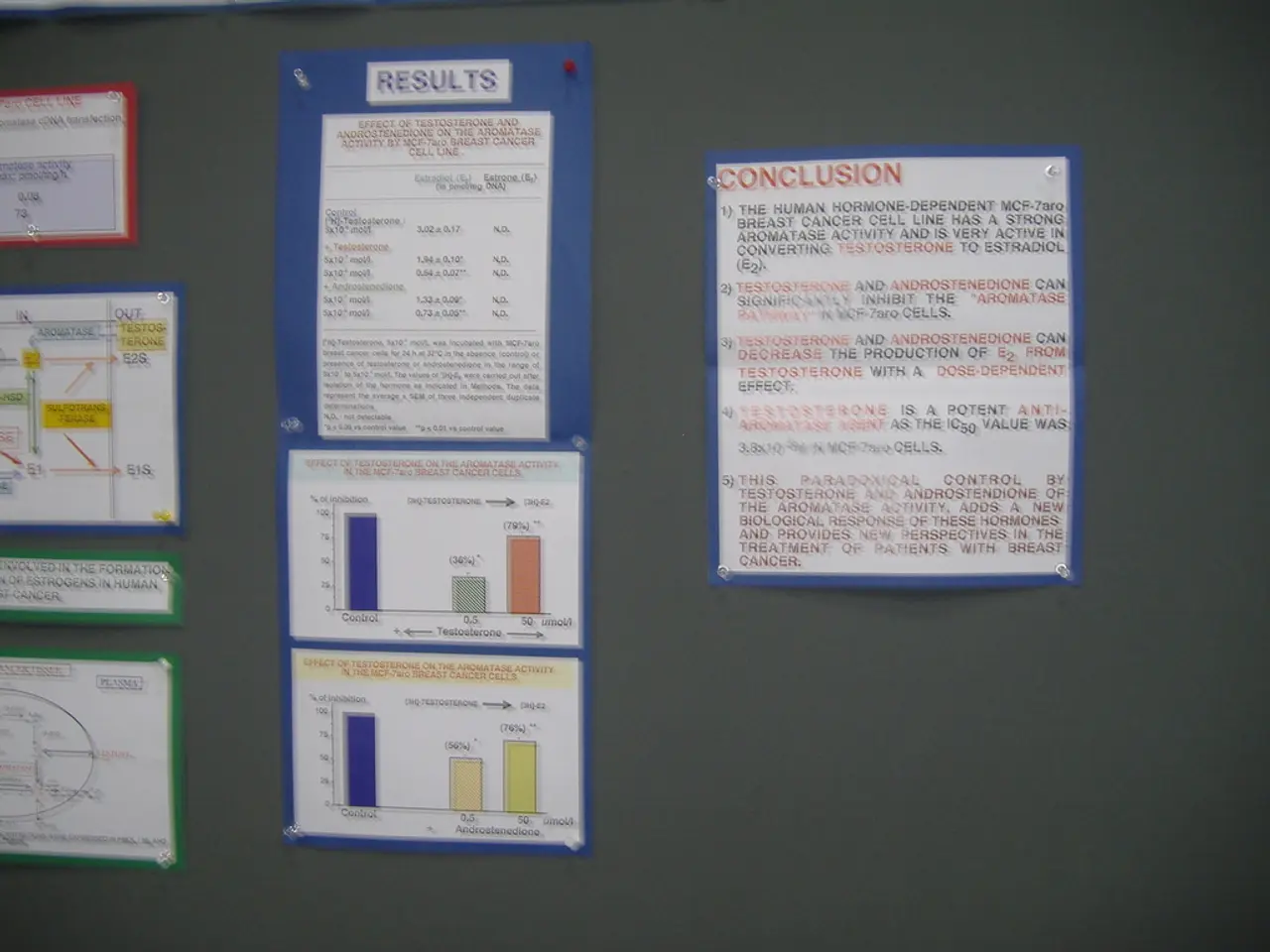Warranty Act Rights: Know Your Consumer Protections (Magnuson-Moss Act)
Navigating the labyrinth of consumer rights hasn't always been a walk in the park, thanks to unclear warranty terms that left many scratching their heads. Congress recognized this issue back in 1975, giving birth to the Magnuson-Moss Warranty Act.
Tired of seeing consumers drowning in legal jargon, companies were no longer able to hide behind vague warranty terms with this Act. It introduced clarity, consistency, and accountability to written consumer warranties, covering a gamut of products and putting sellers on notice.
The Act's Origins
Before 1975, warranties came in every shape and form, without any standard rules. Obscure terms and contradictions left consumers shelling out their hard-earned money even when products boasted a warranty. Federal lawmakers identified these nationwide concerns and passed the Magnuson-Moss Warranty Act to ensure fairness in warranty practices.
The Act forced manufacturers to write warranties using plain language. It also required them to disclose certain information so that consumers could make an informed decision about a product's coverage. The Federal Trade Commission is the authority enforcing these regulations, with penalties for non-compliance a swift punishment for scofflaws.
Key Provisions and Scopes
Several rules in the Magnuson-Moss Warranty Act define what a warranty can say and how it's presented.
- Clear Language: Warranties are required to use simple terms instead of legal doublespeak.
- Disclosure Before Purchase: Sellers offer warranty details upon request or display them prominently.
- Implied Warranties: Written warranties cannot override implied protections based on state law, unless specific disclaimers meet strict criteria.
- Remedies for Non-Compliance: Buyers have legal standing to seek redress if a manufacturer flouts the Act.
The Act promotes competition by permitting consumers to compare warranties. Taking that transparency into consideration, shoppers have an edge when purchasing big-ticket items such as cars, appliances, or electronics. Despite controlling warranty durations, businesses cannot obscure essential conditions that undermine protections.
Two Categories of Warranties
The Act distinguishes two categories of written warranties, each labeled as either "full" or "limited."
1. Full Warranty
- Covers repairs or replacements at no extra cost during the coverage period.
- Places no onerous measures to access service.
- Covers both parts and labor.
- Does not allow sellers to impose extra fees beyond reasonable shipping or handling costs.
2. Limited Warranty
- Covers fewer components or features.
- May necessitate fees for specific repairs.
- May exclude some defects or damages.
- Can restrict coverage length for select parts.
A car's "bumper-to-bumper" plan might be classified as a full warranty, covering most systems for a set timeframe. On the other hand, a powertrain warranty could fall under the limited category, protecting only the engine and transmission. The law mandates that manufacturers or sellers label these warranties, allowing buyers to distinguish them before investing in a purchase.
Common Disputes and How to Address Them
Disagreements arise when companies reject warranty claims, insist on using original parts, or accuse consumers of misuse. The Magnuson-Moss Act halts practices that unfairly penalize consumers:
- Aftermarket Add-Ons: Manufacturers cannot void a warranty based on a non-original part unless that part directly caused the defect.
- Independent Repair Shops: Coverage remains intact if a repair shop follows recommended guidelines, and manufacturers cannot deny a claim unless there's concrete proof that the shop's work caused the malfunction.
- Misuse vs. Defect: Companies may claim owner misuse, but they need concrete evidence. Buyers have the right to request a detailed explanation of how the product was supposedly mistreated.
Often, these issues are settled after a quick discussion. If not, the Act lays out various paths for consumers to pursue a formal remedy, with each scenario differing based on the product type, warranty length, and nature of the failure.
Steps to Deal with a Denied Warranty Claim
A denial doesn't mean the end of the road. The Act allows options when a manufacturer or seller refuses to honor a valid warranty. Here's what consumers can do:
1. Collect Your Documents
- Hunt down receipts, dated warranty statements, and repair records.
- Keep notes of conversations with customer service representatives.
2. Contact the Manufacturer in Writing
- Outline the defect, purchase date, and repair attempts.
- Include any relevant photos or other proof.
- Request a clear explanation of why the claim was denied.
3. Negotiate or Appeal
- Ask to escalate the matter if the initial representative cannot resolve it.
- Remain calm but persistent in seeking reasons for the denial.
4. Check for Mediation or Arbitration
- Some warranties mention dispute resolution programs.
- Mediators or arbitrators examine evidence from both parties and suggest a resolution.
5. File a Court Case
- Resort to the court system if no agreement can be reached.
- The Act may allow consumers to recover attorney fees if the court rules in their favor.
Thorough documentation aids at every stage. A clear paper trail demonstrates that the consumer has evidence to back up their warranty claim.
Federal and State Laws Working Together
The Magnuson-Moss Warranty Act doesn't replace state-level warranty protections or lemon laws. Instead, it complements them, enabling multiple layers of coverage:
Implied Warranties Under State Law
- States recognize implied warranties of merchantability (the product works as advertised) and fitness for a specific purpose (the seller endorses it for the buyer's stated need).
- The Act restricts how written warranties can override these implied rights, keeping many implied safeguards in place.
Lemon Laws
- Several states have laws focused on defective vehicles.
- A buyer struggling with multiple repairs on a new car might qualify for a replacement or refund.
- The federal Act can bolster consumer claims if the manufacturer's written warranty is misleading.
State laws vary in their coverage periods and procedures. Some allow buyers to pursue both state remedies and federal claims, benefiting those coping with a major purchase that fails promptly after leaving the store.
Protecting Your Warranty Rights
Many disputes can be avoided if consumers take the following precautions:
Assess the Terms
- Peruse the warranty text carefully.
- Look for details on coverage duration, labor vs. parts coverage, and limitations on repairs.
Preserve Receipts and Records
- Keep receipts for every repair.
- Store warranty statements and emails from the seller or manufacturer.
- Record the dates and details of phone conversations.
Adhere to Maintenance Guidelines
- Schedule regular service if the warranty requires it.
- Keep records of these services to deter disputes over neglect.
Inquire Before Purchasing
- Sales staff should clarify any confusing terms.
- Opt for a different product if the coverage seems too restrictive.
A well-prepared consumer is less likely to accept a denial devoid of hard evidence. Manufacturers recognizing detailed records realize that the buyer adhered to the warranty terms.
Companies are now mandated to use clear language and disclose necessary information in their product warranties, thanks to the Magnuson-Moss Warranty Act. This Act, enacted in 1975, also introduced regulations that promote competition in the finance and business sector, particularly in big-ticket items such as cars, appliances, and electronics. These regulations ensure that consumers can make informed decisions about the warranties they are purchasing and make it easier to seek redress if a manufacturer violates the Act.






